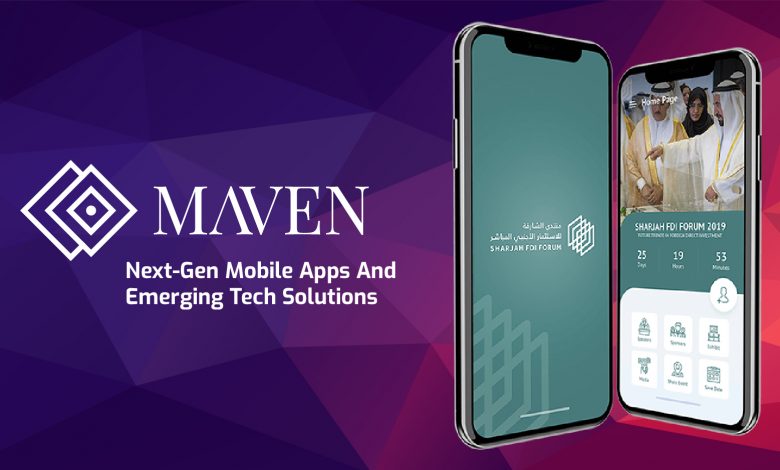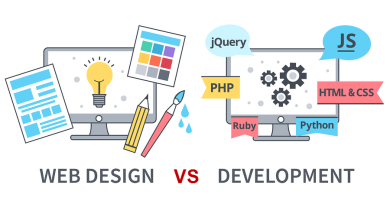Top technologies used for mobile app development

Leading frameworks for mobile app development in 2021
A steady increase in smartphone use is being driven by the COVID-19 forced social distancing and lockout policies. According to a recent survey, 33 billion new apps were globally downloaded in Q3 of 2020 alone. Every month in the third quarter, smartphone users invested 180 billion cumulative hours worldwide, with a whopping $28 billion spent on technology apps. The pandemic will certainly have a lasting effect on developments and innovations in the production of mobile apps, much like how it changed consumer mobile behavior.
It is true that branding and keeping customers can be improved by a well-engaged and standout business app. Any organization that wants to sell its products, extend support, provide service, or share data will surely aim to make its mobile app user-friendly and available to customers. In addition to defining how your mobile application will operate or what tools you will need, it is crucial to find out which mobile development platforms or mobile technologies will best serve your needs.
Nowadays, five major programming languages are used to create mobile apps
The five key programming languages that are largely used for the development of mobile apps include:
1. Swift
Swift is the language to look for if you are creating anything unique to the Apple OS (native to Apple). It is a common application development language for iOS that offers advanced features that can be easily managed with minimal coding. It’s a versatile and intuitive language for macOS, watchOS, tvOS, and so on, loved by Apple developers who use it.
2. C++
For most programming languages, C++ forms the simple basis and has the power to create complex apps for technology. In order to create multi-platform applications, C++ is highly sought after today. Without compromising the performance or security of the software, you can write code in C++ to build the application once and use it on various platforms (Android, iOS, and Windows). The quick and powerful compiler-based approach makes it a flexible tool for various platforms that can be used. Before the launch of Swift in 2014, its sister language, Objective-C, was previously used for software development on Apple systems.
3. Java
This object-oriented programming language has been the common and official language for the development of Android mobile apps since the release of Android in 2008. Java, an incredibly versatile language, helps to keep the app flexible, scalable, and expandable. Java is easy to manage and users can choose from many open source libraries.
4. HTML5
If your company looks at creating web-frontend software for mobile devices, there is no better technology to use than HTML5. Organizations that regard the creation of cross-platform mobile apps as a challenging challenge frequently turn to HTML5 as it enables you to have the correct functionality and outstanding user experience. The “write-once-run-anywhere” benefit given by HTML5 speeds up your marketing time, increases the visibility of your app, makes production affordable, and supports offline browsing.
5. PHP
PHP is object-oriented, a very simple language to understand, and uses a three-layered model to help build interactive mobile apps and web applications. For apps that require integration of databases, it is highly suitable. Common PHP frameworks such as Laravel, Lumen, CodeIgniter, and Symfony are commonly used to create mobile apps requiring complicated backend and exhaustive migration of data. This open-source language is favoured by large scale app projects as it simplifies caching, authentication, and even it routed.
For those who are looking forward to developing their own mobile apps using these programming languages, a number of advanced technology tools are available. These developer tools are suitable for developing mobile applications from scratch and also have multi-platform features to reach wider audiences.
Top tools to help you start creating your own mobile app
1. PhoneGap
PhoneGap, also known as Apache Cordova, is an open-source mobile app development platform that builds native applications for Android, Windows, and iOS using CSS3, HTML5, and JavaScript. This platform enables native and hybrid code snippets to be combined, resulting in applications that are not genuinely native mobile or web-based apps.
- The Appcelerator
The best alternative for designing hardware-based apps is this open-source platform. To build native apps for iOS, Android, and Windows UWP, the application uses HTML, PHP, and JavaScript.
- TheRhoMobile
RhoMobile Suite is based on the powerful open-source Rhodes framework that supports multiple platforms to build native apps. It is heavily used to develop mobile apps for cross-platform and native users and enterprises. Web technologies such as CSS3, HTML5, JavaScript, and Ruby are used by RhoMobile to create apps for most operating systems, including iOS, Android and Windows.
4. WidgetPad
For cross-platform mobile application development, WidgetPad is one of the best open-source frameworks. To provide a multitude of choices, such as source code editing, versioning, and distribution, it uses web technologies such as JavaScript and HTML5. This open-source framework allows applications for Android, iOS, and web platforms also creating.
- MoSynchronized
MoSync is an open-source mobile app development kit for multi-platforms that uses programming languages such as JavaScript, PHP, Ruby, and Python. It is combined with an IDE based on Eclipse which is allowing the development of native mobile apps using C/ C++ programming for multiple platforms.
Leading frameworks for mobile application development which developers need to explore in 2021
1. Flutter
Flutter is the city’s latest trendy cross-platform mobile app development technology. Instead of JavaScript, it uses “Dart” as a programming language that encourages quick and efficient analysis, fabricates UIs, includes highlights, and fixes bugs in milliseconds. Google’s open source cross-platform SDK extends a wide variety of Google-backed plugins and makes it possible to create mobile applications for both Android and Apple iOS platforms.
- Native React
The most favored native mobile app development technology has been this JavaScript open-source platform. It provides ample support for IDEs and other tools for the development of mobile apps and allows the development of native iOS and Android platform apps. The ReactNative framework allows JavaScript to be used to create native mobile apps using the same template as React. Apps developed with React are actual mobile applications that can not be differentiated from an Objective-C or Java
- Ionics
Ionic uses the programming language HTML5 and is commonly preferred today for the development of mobile applications. To build native apps and create their UI features with ease, it combines HTML, CSS3, and JavaScript. This technology for mobile app creation operates on the UIWebView of iOS or WebView of Android. On the top of Angular JS and Apache Cordova, Ionic is also constructing. Ionic is the fastest way to create, expand, and scale cross-platform mobile apps for web developers.
- Xamarin The Xamarin
This cross-platform structure utilizes single code across iOS, Android, Windows, and other platforms with the coding benefits of C#. Xamarin builds applications that make correct native app experience with the benefits of code sharing. It is the most time- and cost-saving platform for the growth of mobile apps. With a single shared .NET code base, Xamarin helps you to offer native Android, iOS, and Windows applications. The framework provides access, including platform-specific features, to the full spectrum of functionality exposed by the underlying platform and device.
- NativeScript Script
NativeScript, originally created by Progress, is today one of the most desired open source frameworks to build apps for Apple iOS and Android. It enables developers to use JavaScript or some other language that transcompiles JavaScript to create mobile apps (eg: TypeScript). Some of NativeScript’s noteworthy features are native API reflection, Angular integration, and Vue.js integration. The framework also helps developers without using any wrappers to re-purpose third-party libraries from Maven, npm.js, and CocoaPods into their applications.
6.Felgo 6.Felgo
Felgo is a common cross-platform development system used to build mobile games and applications, formerly people know it as the V-Play Engine. Felgo uses Qt as its core framework that simplifies game and app development. With Felgo, for Android, iOS, Desktop, Web you can build versatile and modern apps natively compiled from a single code-base.
- Mobile Angular User Interface
Mobile Angular UI is a mobile open source application that blends Angular js and Bootstrap 3 syntax with the best functionality, including Bootstrap’s missing components. New UI elements does not support such as navbar, sidebars, modals and overlays, switches, etc. Mobile Angular UI helps companies to create mobile and desktop HTML5 hybrid apps with less effort.
Author Bio:
Zask Doh is a skilled web developer with PHP experience in both front and back-end development. He excels in responsive web design, WordPress, CodeIgniter, and various data sources, including Facebook and Twitter APIs, to incorporate integrations. He has produced a variety of sites on a wide scale.Currently Doh is working with app development company dubai

![What Are The Services [Updated] Of A Digital Marketing Agency?](https://www.recablog.com/wp-content/uploads/2022/07/What-Are-The-Services-Updated-Of-A-Digital-Marketing-Agency-390x220.jpg)



